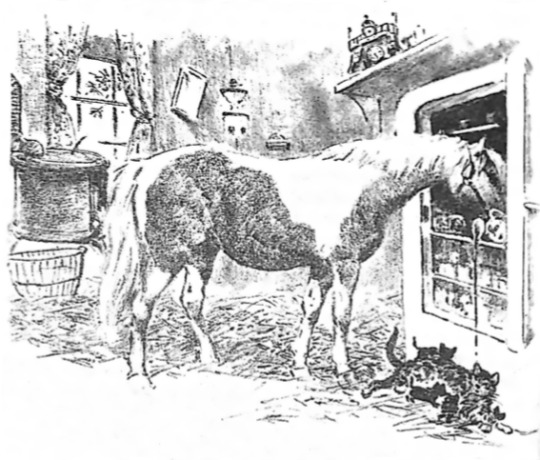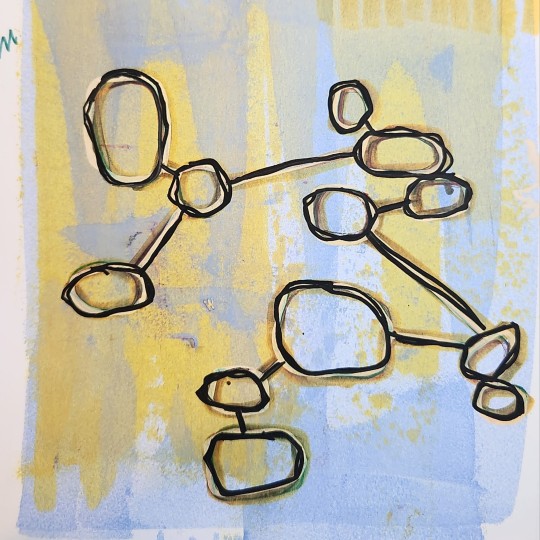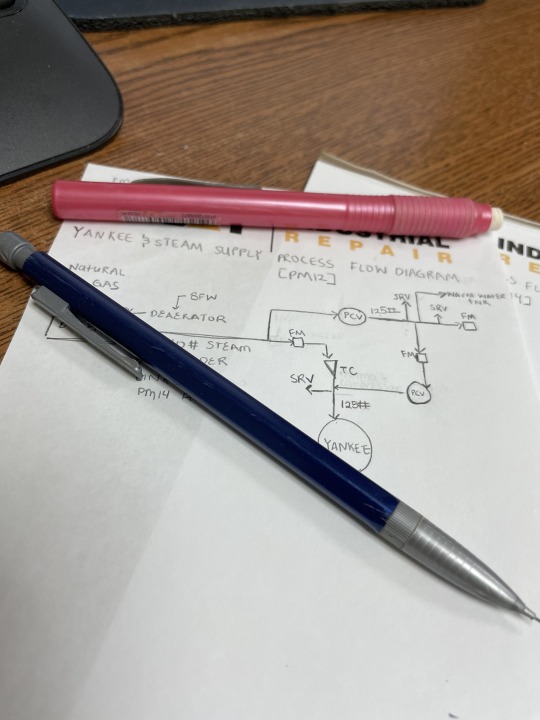#pulp and paper
Text
Greenwashing set Canada on fire

On September 22, I'm (virtually) presenting at the DIG Festival in Modena, Italy. On September 27, I'll be at Chevalier's Books in Los Angeles with Brian Merchant for a joint launch for my new book The Internet Con and his new book, Blood in the Machine.

As a teenager growing up in Ontario, I always envied the kids who spent their summers tree planting; they'd come back from the bush in September, insect-chewed and leathery, with new muscle, incredible stories, thousands of dollars, and a glow imparted by the knowledge that they'd made a new forest with their own blistered hands.
I was too unathletic to follow them into the bush, but I spent my summers doing my bit, ringing doorbells for Greenpeace to get my neighbours fired up about the Canadian pulp-and-paper industry, which wasn't merely clear-cutting our old-growth forests – it was also poisoning the Great Lakes system with PCBs, threatening us all.
At the time, I thought of tree-planting as a small victory – sure, our homegrown, rapacious, extractive industry was able to pollute with impunity, but at least the government had reined them in on forests, forcing them to pay my pals to spend their summers replacing the forests they'd fed into their mills.
I was wrong. Last summer's Canadian wildfires blanketed the whole east coast and midwest in choking smoke as millions of trees burned and millions of tons of CO2 were sent into the atmosphere. Those wildfires weren't just an effect of the climate emergency: they were made far worse by all those trees planted by my pals in the eighties and nineties.
Writing in the New York Times, novelist Claire Cameron describes her own teen years working in the bush, planting row after row of black spruces, precisely spaced at six-foot intervals:
https://www.nytimes.com/2023/09/15/opinion/wildfires-treeplanting-timebomb.html
Cameron's summer job was funded by the logging industry, whose self-pegulated, self-assigned "penalty" for clearcutting diverse forests of spruce, pine and aspen was to pay teenagers to create a tree farm, at nine cents per sapling (minus camp costs).
Black spruces are made to burn, filled with flammable sap and equipped with resin-filled cones that rely on fire, only opening and dropping seeds when they're heated. They're so flammable that firefighters call them "gas on a stick."
Cameron and her friends planted under brutal conditions: working long hours in blowlamp heat and dripping wet bulb humidity, amidst clouds of stinging insects, fingers blistered and muscles aching. But when they hit rock bottom and were ready to quit, they'd encourage one another with a rallying cry: "Let's go make a forest!"
Planting neat rows of black spruces was great for the logging industry: the even spacing guaranteed that when the trees matured, they could be easily reaped, with ample space between each near-identical tree for massive shears to operate. But that same monocropped, evenly spaced "forest" was also optimized to burn.
It burned.
The climate emergency's frequent droughts turn black spruces into "something closer to a blowtorch." The "pines in lines" approach to reforesting was an act of sabotage, not remediation. Black spruces are thirsty, and they absorb the water that moss needs to thrive, producing "kindling in the place of fire retardant."
Cameron's column concludes with this heartbreaking line: "Now when I think of that summer, I don’t think that I was planting trees at all. I was planting thousands of blowtorches a day."
The logging industry committed a triple crime. First, they stole our old-growth forests. Next, they (literally) planted a time-bomb across Ontario's north. Finally, they stole the idealism of people who genuinely cared about the environment. They taught a generation that resistance is futile, that anything you do to make a better future is a scam, and you're a sucker for falling for it. They planted nihilism with every tree.
That scam never ended. Today, we're sold carbon offsets, a modern Papal indulgence. We are told that if we pay the finance sector, they can absolve us for our climate sins. Carbon offsets are a scam, a market for lemons. The "offset" you buy might be a generated by a fake charity like the Nature Conservancy, who use well-intentioned donations to buy up wildlife reserves that can't be logged, which are then converted into carbon credits by promising not to log them:
https://pluralistic.net/2020/12/12/fairy-use-tale/#greenwashing
The credit-card company that promises to plant trees every time you use your card? They combine false promises, deceptive advertising, and legal threats against critics to convince you that you're saving the planet by shopping:
https://pluralistic.net/2021/11/17/do-well-do-good-do-nothing/#greenwashing
The carbon offset world is full of scams. The carbon offset that made the thing you bought into a "net zero" product? It might be a forest that already burned:
https://pluralistic.net/2022/03/11/a-market-for-flaming-lemons/#money-for-nothing
The only reason we have carbon offsets is that market cultists have spent forty years convincing us that actual regulation is impossible. In the neoliberal learned helplessness mind-palace, there's no way to simply say, "You may not log old-growth forests." Rather, we have to say, "We will 'align your incentives' by making you replace those forests."
The Climate Ad Project's "Murder Offsets" video deftly punctures this bubble. In it, a detective points his finger at the man who committed the locked-room murder in the isolated mansion. The murderer cheerfully admits that he did it, but produces a "murder offset," which allowed him to pay someone else not to commit a murder, using market-based price-discovery mechanisms to put a dollar-figure on the true worth of a murder, which he duly paid, making his kill absolutely fine:
https://pluralistic.net/2021/04/14/for-sale-green-indulgences/#killer-analogy
What's the alternative to murder offsets/carbon credits? We could ask our expert regulators to decide which carbon intensive activities are necessary and which ones aren't, and ban the unnecessary ones. We could ask those regulators to devise remediation programs that actually work. After all, there are plenty of forests that have already been clearcut, plenty that have burned. It would be nice to know how we can plant new forests there that aren't "thousands of blowtorches."
If that sounds implausible to you, then you've gotten trapped in the neoliberal mind-palace.
The term "regulatory capture" was popularized by far-right Chicago School economists who were promoting "public choice theory." In their telling, regulatory capture is inevitable, because companies will spend whatever it takes to get the government to pass laws making what they do legal, and making competing with them into a crime:
https://pluralistic.net/2022/06/13/public-choice/#ajit-pai-still-terrible
This is true, as far as it goes. Capitalists hate capitalism, and if an "entrepreneur" can make it illegal to compete with him, he will. But while this is a reasonable starting-point, the place that Public Choice Theory weirdos get to next is bonkers. They say that since corporations will always seek to capture their regulators, we should abolish regulators.
They say that it's impossible for good regulations to exist, and therefore the only regulation that is even possible is to let businesses do whatever they want and wait for the invisible hand to sweep away the bad companies. Rather than creating hand-washing rules for restaurant kitchens, we should let restaurateurs decide whether it's economically rational to make us shit ourselves to death. The ones that choose poorly will get bad online reviews and people will "vote with their dollars" for the good restaurants.
And if the online review site decides to sell "reputation management" to restaurants that get bad reviews? Well, soon the public will learn that the review site can't be trusted and they'll take their business elsewhere. No regulation needed! Unleash the innovators! Set the job-creators free!
This is the Ur-nihilism from which all the other nihilism springs. It contends that the regulations we have – the ones that keep our buildings from falling down on our heads, that keep our groceries from poisoning us, that keep our cars from exploding on impact – are either illusory, or perhaps the forgotten art of a lost civilization. Making good regulations is like embalming Pharaohs, something the ancients practiced in mist-shrouded, unrecoverable antiquity – and that may not have happened at all.
Regulation is corruptible, but it need not be corrupt. Regulation, like science, is a process of neutrally adjudicated, adversarial peer-review. In a robust regulatory process, multiple parties respond to a fact-intensive question – "what alloys and other properties make a reinforced steel joist structurally sound?" – with a mix of robust evidence and self-serving bullshit and then proceed to sort the two by pantsing each other, pointing out one another's lies.
The regulator, an independent expert with no conflicts of interest, sorts through the claims and counterclaims and makes a rule, showing their workings and leaving the door open to revisiting the rule based on new evidence or challenges to the evidence presented.
But when an industry becomes concentrated, it becomes unregulatable. 100 small and medium-sized companies will squabble. They'll struggle to come up with a common lie. There will always be defectors in their midst. Their conduct will be legible to external experts, who will be able to spot the self-serving BS.
But let that industry dwindle to a handful of giant companies, let them shrink to a number that will fit around a boardroom table, and they will sit down at a table and agree on a cozy arrangement that fucks us all over to their benefit. They will become so inbred that the only people who understand how they work will be their own insiders, and so top regulators will be drawn from their own number and be hopelessly conflicted.
When the corporate sector takes over, regulatory capture is inevitable. But corporate takeover isn't inevitable. We can – and have, and will again – fight corporate power, with antitrust law, with unions, and with consumer rights groups. Knowing things is possible. It simply requires that we keep the entities that profit by our confusion poor and thus weak.
The thing is, corporations don't always lie about regulations. Take the fight over working encryption, which – once again – the UK government is trying to ban:
https://www.theguardian.com/technology/2023/feb/24/signal-app-warns-it-will-quit-uk-if-law-weakens-end-to-end-encryption
Advocates for criminalising working encryption insist that the claims that this is impossible are the same kind of self-serving nonsense as claims that banning clearcutting of old-growth forests is impossible:
https://twitter.com/JimBethell/status/1699339739042599276
They say that when technologists say, "We can't make an encryption system that keeps bad guys out but lets good guys in," that they are being lazy and unimaginative. "I have faith in you geeks," they said. "Go nerd harder! You'll figure it out."
Google and Apple and Meta say that selectively breakable encryption is impossible. But they also claim that a bunch of eminently possible things are impossible. Apple claims that it's impossible to have a secure device where you get to decide which software you want to use and where publishers aren't deprive of 30 cents on every dollar you spend. Google says it's impossible to search the web without being comprehensively, nonconsensually spied upon from asshole to appetite. Meta insists that it's impossible to have digital social relationship without having your friendships surveilled and commodified.
While they're not lying about encryption, they are lying about these other things, and sorting out the lies from the truth is the job of regulators, but that job is nearly impossible thanks to the fact that everyone who runs a large online service tells the same lies – and the regulators themselves are alumni of the industry's upper eschelons.
Logging companies know a lot about forests. When we ask, "What is the best way to remediate our forests," the companies may well have useful things to say. But those useful things will be mixed with actively harmful lies. The carefully cultivated incompetence of our regulators means that they can't tell the difference.
Conspiratorialism is characterized as a problem of what people believe, but the true roots of conspiracy belief isn't what we believe, it's how we decide what to believe. It's not beliefs, it's epistemology.
Because most of us aren't qualified to sort good reforesting programs from bad ones. And even if we are, we're probably not also well-versed enough in cryptography to sort credible claims about encryption from wishful thinking. And even if we're capable of making that determination, we're not experts in food hygiene or structural engineering.
Daily life in the 21st century means resolving a thousand life-or-death technical questions every day. Our regulators – corrupted by literally out-of-control corporations – are no longer reliable sources of ground truth on these questions. The resulting epistemological chaos is a cancer that gnaws away at our resolve to do anything about it. It is a festering pool where nihilism outbreaks are incubated.
The liberal response to conspiratorialism is mockery. In her new book Doppelganger, Naomi Klein tells of how right-wing surveillance fearmongering about QR-code "vaccine passports" was dismissed with a glib, "Wait until they hear about cellphones!"
https://pluralistic.net/2023/09/05/not-that-naomi/#if-the-naomi-be-klein-youre-doing-just-fine
But as Klein points out, it's not good that our cellphones invade our privacy in the way that right-wing conspiracists thought that vaccine passports might. The nihilism of liberalism – which insists that things can't be changed except through market "solutions" – leads us to despair.
By contrast, leftism – a muscular belief in democratic, publicly run planning and action – offers a tonic to nihilism. We don't have to let logging companies decide whether a forest can be cut, or what should be planted when it is. We can have nice things. The art of finding out what's true or prudent didn't die with the Reagan Revolution (or the discount Canadian version, the Mulroney Malaise). The truth is knowable. Doing stuff is possible. Things don't have to be on fire.



If you'd like an essay-formatted version of this post to read or share, here's a link to it on pluralistic.net, my surveillance-free, ad-free, tracker-free blog:
https://pluralistic.net/2023/09/16/murder-offsets/#pulped-and-papered
#pluralistic#logging#pulp and paper#ontario#greenwashing#a market for lemons#incentives matter#capitalism#late-stage capitalism#climate emergency#wildfires#canada#canpoli#ontpoli#carbon offsets#self-regulation#nerd harder#epistemological chaos#regulatory capture#Claire Cameron#pines in lines
3K notes
·
View notes
Text

Revolutionizing Pulp & Paper with IDEXCognito's EODD Pump Expertise
Experience a revolution in the pulp and paper industry with IDEXCognito's EODD Pump expertise. As a leading double diaphragm pump manufacturer, IDEXCognito is at the forefront of innovation, providing cutting-edge solutions that redefine efficiency and reliability in pumping processes. Trust IDEXCognito to elevate your operations with state-of-the-art EODD pumps, setting new standards in performance and sustainability for the pulp and paper sector.
0 notes
Link
..
#Industrial tree plantation species#Root nodules#Seedling quality index#Sturdiness quotient#Pulp and paper
1 note
·
View note
Text
Retention and Drainage Program in the Paper Industry: Advance Chemicals’ Solution

In the paper industry, the retention and drainage program is a critical aspect of the papermaking process. The goal is to maximize the retention of fibers and fillers, minimize the amount of fines and debris, and improve the drainage rate of the paper machine. This results in a higher quality paper with improved strength, brightness, and overall appearance.
Advance Chemicals is a leading provider of retention and drainage solutions for the paper industry. The company offers a comprehensive program designed to improve the efficiency of the papermaking process and produce high-quality paper.
The retention and drainage program by Advance Chemicals is based on a combination of advanced chemical technologies, process optimization, and expert application support. The program includes a range of products specifically designed for the paper industry, including retention aids, drainage aids, and coagulants.
Retention aids are chemicals that are added to the papermaking process to increase the retention of fibers and fillers. They help to prevent fines and debris from escaping the paper machine and promote the formation of a uniform sheet. Drainage aids are added to the process to improve the flow of water and reduce the formation of debris, resulting in a faster drainage rate and a cleaner sheet.
Coagulants are used to control the charge of the fibers and fillers in the papermaking process. They help to prevent the formation of flocs and promote a uniform sheet. The coagulants used in the retention and drainage program by Advance Chemicals are carefully selected to minimize any negative impact on the papermaking process and produce a high-quality product.
In addition to the chemical products, Advance Chemicals also provides expert application support. The company’s experienced technicians work with papermakers to optimize the process, providing advice on product selection, dosages, and application methods. This ensures that the retention and drainage program is tailored to the specific needs of each customer and produces the best results.
In conclusion, the retention and drainage program by Advance Chemicals is a comprehensive solution designed to improve the efficiency of the papermaking process and produce high-quality paper. The program combines advanced chemical technologies, process optimization, and expert application support to deliver the best results for papermakers.
Get in touch with our experts www.advancechemicals.in
0 notes
Text

#kirby#daily kirby#my art#digital#hal laboratory#nintendo#I am making paper#which involves soaking trash paper in water for a long long time#and then dipping in a screen to scoop out little even layers at a time#it is not Aesthetique(tm)#but it is kinda fun#the pulp soup ends up looking like this#(cuz I don't outright blend it with a blender)
172 notes
·
View notes
Text
Since I stopped regularly posting my art online it's nuts the psyche reset my art brain went through. Ego death of whatever deviantart mentality. I'm back to drawing w markers bc it's fun, baby. Making my weird little things and breaking crafts bc it's not always an unusable result lol. Waiting to get back to my 12yr old mary sue generator brain, it's the next step to making more things I enjoy making
#Creepy chatter#I mean this so genuinely online validation is not the only reward art has for you#You could just have a pile of discovery-filled experiments and honestly what better chance of finding that art thing you want to obsess ove#I have tried some things and hated them recently lol. But like? It was very fun to see the ways the paper would falter#Good info for when I use a similar material in the future also did you know inky paper pulp can add texture on purpose#Grinding my boys leather jacket into a soppy mess and setting it w gel medium#Call that faux leather baby. We're making touch and learn baby book type of art#I need to make another decoupage Bob Ross or I will boil over like a coke w mentos
29 notes
·
View notes
Text

#0001 of the artifacts for a future time series.
172 notes
·
View notes
Text








Stormy, Misty's Foal (1963) by Marguerite Henry, illustrated by Wesley Dennis
#some of these scanned real shit#bc theyre pulp fiction#and that paper does not convert well#ANYWAY#marguerite henry#wesley dennis#horses#illustration#equids#misty of chincoteague#ink#horse illustration#mr crisp
689 notes
·
View notes
Photo

Magnus Maxine The New York Times Friday April 24, 2021 2021 Oil and fruit stickers on newspaper and paper pulp 55.9 × 55.9 cm
161 notes
·
View notes
Text
yeah sometimes you relisten to Great Moon Hoax and realise just what a POOR choice of words that is, considering what happens in the future. I cry over Paper Stars so much, my god. At least she isn't really dead??
(editing is HARD, shoutout to @tapestryoftrauma for consistently making banger Pulp edits that inspired me to make this! You're doing an amazing job, and we're so lucky to have you in this fandom.)
#pulp musicals#rose stratford#sir john herschel#snarky edits#snarky speaks#paper stars#paper stars is so beautiful you guys i'd die for them
18 notes
·
View notes
Text









Recently: making paper, and making things on paper.
16 notes
·
View notes
Text
Aether bandits who attack mail carriers but they're not going after money or valuables they're strictly here for that delicious mail
#aethers who sign up for every single scammy mailing list and catalog and charity thing for free yummy snacks delivered right to their door#aethers who start a paper recycling service but its revealed they arent recycling anything theyre just reselling it to other aethers#i think print shops or their equivalent have scented paper options for tundras. now that aethers are here they start getting into flavors#unscrupulous aether who will dispose of incriminating documents no questions asked#devious aether who intends to smuggle top secrets but gets distracted and eats them instead#aether equivalent of paleo diet where they just eat wood pulp#origami is aether finger food
57 notes
·
View notes
Text
Im going to do violence

#what if I just punched a tree until it became paper pulp#one of the worser days of my life <3#everyone was nice but I was doing the job of four people ALONE#people kept telling me ‘wow you’re so calm given the circumstances.’ … brother I am no longer in my body I feel nothing rn#highlight was multiple people being like ‘hey do u know howls moving castle’ and me dressed as howl today being like ‘haha… yeah.’#this girl said to me ‘are you howl’#I said ‘sometimes <3’c#squawk tag
9 notes
·
View notes
Text

link
#Paul Rentler#@prentler#collage#collage art#pulp art#photocopy#photocopy art#scraps#paper#print#painting#details#design#printmaking#screenprint#silkscreen#streetart#poster#pop art#punk#illustration#grit#cutandpaste#contemporaryart#art#artzine#zine#mixed media#paul rentler#comic book art
12 notes
·
View notes
Text
Industrial Water circulation - Foaming and Defoaming
In industrial water circulation systems and manufacturing processes, defoamers are essential components for ensuring that the system runs smoothly and efficiently. Advance Chemicals is a leading supplier of defoamers, offering both oil-based and silicone-based products.
Oil-based defoamers are the most commonly used type of defoamers, and Advance Chemicals’ vegetable oil-based defoamers are well-known for their ability to reduce foaming in a variety of different industrial applications. These defoamers are easy to use and are effective in treating a wide range of foaming problems, including preventing foam buildup in water circulation systems and improving the flow of liquids in manufacturing processes.
In addition to being used in water circulation systems, Advance Chemicals vegetable oil-based defoamers are also used in a variety of other applications, including machine lubrication, cooling tower and air conditioning systems, and as an additive in adhesive and sealant formulations. These defoamers are suitable for both indoor and outdoor applications, making them a versatile and cost-effective choice for a variety of industrial applications.
Advance Chemicals also offers silicone-based defoamers, which are suitable for a wide range of applications. These defoamers provide excellent foam reduction and control in a variety of industries, including the food and beverage industry, paper and pulp mills, and industrial cooling systems. Silicone-based defoamers are also highly effective in controlling foam in laundry detergents and fabric softeners.
Advance Chemicals’ oil-based and silicone-based defoamers offer a variety of benefits, including improved efficiency, reduced foaming, and increased safety. With their wide range of applications, oil-based and silicone-based defoamers from Advance Chemicals are the ideal choice for industrial water circulation systems and manufacturing processes.
For best in class defoamers do visit us get to know more...
#defoamer#silicone#oil defoaming#water foam#foaming#Pulp and Paper#paper industry#sugar industry#textile industry
0 notes
